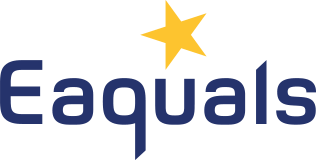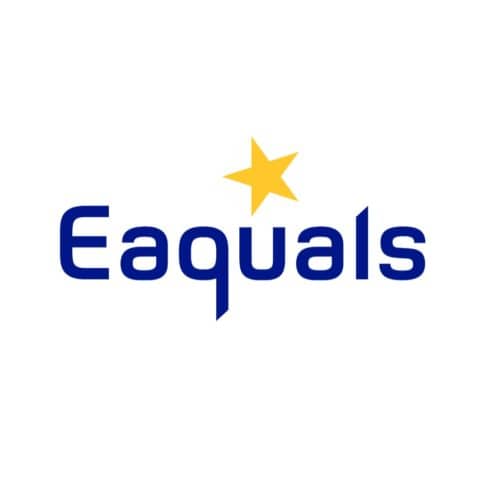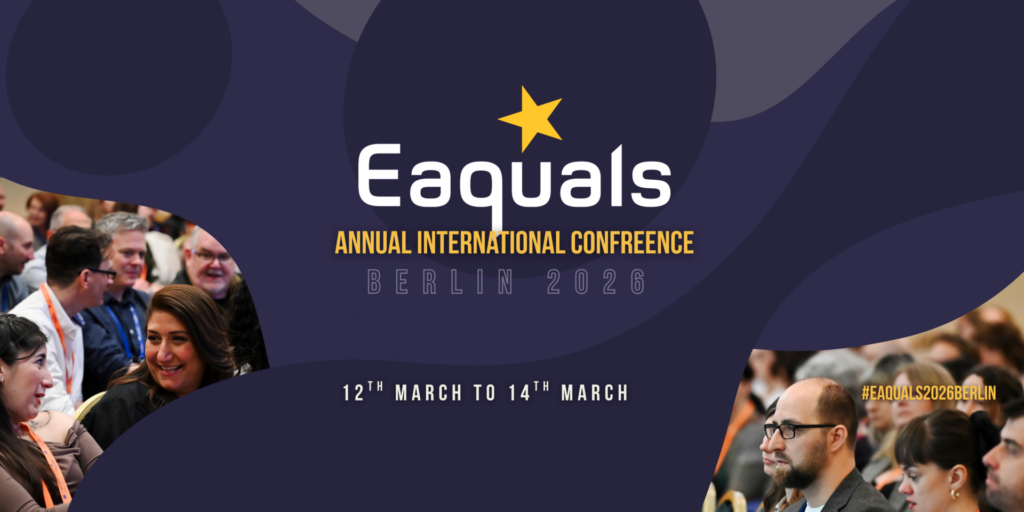Event Programme
Key: Sesson Types
10th Friday Programme
Plenary Session - The Council of Europe and language education: from vision to reality; from theory to practice
In her opening plenary, Sarah will consider the theme of the conference – Building Quality Foundations – From Theoretical Frameworks to Practical Applications – through the prism of the Council of Europe’s contribution to the field of language education over many decades, at multiple levels and involving multiple stakeholders, not least among these the Council’s successful cooperation with Eaquals.
She will outline the Council’s human-rights based vision for language education as set out in Recommendation CM/Rec (2022)1 on the importance of plurilingual and intercultural education for democratic culture, and, by presenting a selection of resources, resulting from research-informed international cooperation projects, will demonstrate what this vision means in concrete terms for language education at the levels of policy, teacher education and classroom practice.
The Eaquals AMCF Framework is a tool for academic managers to develop leadership, curriculum, and quality assurance skills in language institutions. This session will explain the principles underlying the framework, how the framework was put together and how it works in practice.
The Eaquals TD Framework supports language teachers at all career stages. It helps identify teaching competencies and guides continuous professional development. This presentation outlines the principles on which the framework is based, how the framework was developed and how it can be used.
The Sustainability Framework for ELT has been developed by Cambridge to support teachers in integrating sustainability skills development into their lessons. Based on extensive research, it is a way of making sense of the different skills learners need to become informed, compassionate, and innovative agents for positive environmental, social, and economic transformation. In this session, we will explore the framework and show how it can be applied in the ELT classroom.
Framework 4 - The Eaquals Framework for Language for Academic Purposes Teacher Training & Development
The Eaquals LAP framework supports teachers, managers, coordinators, teacher trainers and other professionals working in the field of language for academic purposes. This presentation will look at how the framework was developed and how users can approach it to make use of it in their own academic contexts.
11th Saturday Programme
Conference Opening
This session explores how the MEF University School of Foreign Languages (SoFL) implemented the Eaquals Framework for Language Teacher Development and Training to establish a structured CPD system, progressing from its initial formation to successful accreditation. The framework provided a clear developmental path for teachers, supporting growth at all stages of professional experience. It also offered an evidence-based structure that enabled us to systematically categorize teacher development priorities and ensure balanced attention to all key areas. Its application enhanced institutional decision-making, strengthened documentation practices, and contributed to greater consistency and quality in teaching. As a result, improvements in instructional practice led to more effective student learning and engagement. Participants will gain practical strategies for applying the framework, managing CPD processes, and aligning teacher development with improved learning outcomes and accreditation goals.
From awareness to engagement – Building skills and resilience to engage with sustainability challenges
Following on from our introduction to the Cambridge Sustainability Framework for ELT, this session will explore practical ways to use your existing teaching materials to equip learners to engage with the challenges we face as a planet – environmental, social and economic. We’ll provide a starting point to help you and your learners develop a deeper understanding of sustainability, renewed appreciation for our world and those who inhabit it, and a resilient and hopeful mindset to carry them forwards. We’ll discover how to identify opportunities in teaching materials where sustainability naturally fits, try out ready-made activities and set you up to bring sustainability into any English class.
This session explores how the EAQUALS Academic Management Competency Framework (AMCF) is utilized by managers for continuous professional development and performance evaluation at the School of Languages of a foundation university in Turkey. The presenters will share the steps taken to adapt this framework to their institutional context, using it as both a performance evaluation and a professional development tool. The session will focus on the practical application of the framework to support managerial growth and promote effective school leadership. Through this presentation, the speakers aim to inspire participants to consider how the AMCF can be effectively used for managerial development and performance enhancement in their own institutions.
As artificial intelligence continues to evolve as a key element of language education, it is essential that pre-service language teachers are equipped not only with digital tools and the Technological Pedagogical Content Knowledge framework (TPACK), but with the critical awareness and pedagogical strategies to use them effectively. This presentation explores how the Eaquals Framework for Teacher Development and Training can guide the integration of AI literacy into teacher education, with a focus on practical classroom applications. Drawing on a series of pre-service teacher training sessions, we will demonstrate how the framework’s descriptors, particularly in the areas of planning, digital literacy, resource development, and reflective practice, were used to structure the sessions that introduced future teachers to the world of AI tools such as ChatGPT, Claude, Napkin AI, and Madlen for use in English language teaching. The sessions emphasized the ethical use of AI tools, prompt design, and classroom-ready strategies for teaching writing, vocabulary, lesson planning and learner autonomy with AI. Participants will take away a framework-aligned AI integration pathway, transferable training strategies, and practical insights for building foundational AI skills that prepare future educators to teach confidently and responsibly in evolving educational contexts.
Following on from our introduction to the Cambridge Sustainability Framework for ELT, this session will focus on cultivating the skills students need to become active, innovative contributors to a sustainable future. With a focus on equity, innovation, agency and collaborative problem-solving, we will engage with sustainability as a catalyst for empowering student agency and future-ready capabilities. We’ll look at how you can use elements of problem-based learning with existing materials and explore some ready-made activities to give you practical tools and strategies as well as inspiration for your next class.
From Newbie to Navigator: Developing Academic Leaders with the Eaquals Academic Managers Competency Framework
How do you transform a newly appointed, inexperienced Director of Studies into a confident, capable academic leader? In this session, Juliette Synnott-Lee shares a real-world case study of how she used the Eaquals Academic Managers Competency Framework as a practical development tool—shifting it from a static document to a dynamic training roadmap.
Through structured self-evaluation, targeted coaching sessions, and role-specific application, Juliette helped shape a bespoke professional journey that supported growth, built confidence, and embedded key academic management principles in daily practice.
This session will offer insights into:
- Customising the Eaquals framework to suit institutional realities
- Creating development pathways for new or aspiring academic managers
- Using self-assessment to foster ownership, reflection, and progress
Whether you’re leading a single school or overseeing multiple centres, you’ll leave with actionable ideas on how to support and nurture future leaders in your organisation.
How can we move from frameworks to meaningful, practical development? This workshop shares a hands-on approach to integrating the Eaquals Framework for Teacher Development and Training with coaching tools and reflective practices to empower teachers in real-world contexts.
Participants will walk away with:
- A mapped-out plan linking framework stages with coaching touchpoints
- Templates for reflective prompts and feedback
- Practical ideas to build a teacher-led growth culture
This session explores how the Cambridge ELT Sustainability Framework was adapted and embedded into a textbook-free, English-only summer school at TAC Denizli Language School, Türkiye. With sustainability at its core, this unique program — named TACZANIA — reimagined language education as a lived experience through real-world tasks, project-based learning, and community interaction.
Key components such as the TAC Public Help Day, Post Office Outreach, English Time Capsule, and Student Radio Broadcasts replaced traditional materials with authentic communicative tasks, fostering deep engagement and long-term language retention. These activities were not only cost-effective and inclusive but also aligned with institutional goals and environmental responsibility.
Attendees will walk away with clear, adaptable strategies for applying the Cambridge framework in a variety of settings, whether urban or rural, large-scale or boutique. This session is ideal for academic managers, curriculum designers, and teachers who want to build sustainable, engaging, and future-ready English language programs — without relying on textbooks.
In the EMI context, there is often a leadership contradiction. Most of those who are in the organization are highly qualified to teach; the number qualified to lead is much lower. This only makes sense as these organizations generally recruit and hire instructional staff. Those who do enter administration may do so by virtue of simply hanging on long enough, or by showing a spark of interest. In either case, however, it is rare that the administrator-to-be has the education and background to comfortably succeed in a managerial role. Instead, budding administrators, while happy to be recognized for their efforts with a promotion, are also often left to figure out management on their own. Without effective evaluation of skills, and an accompanying structured training and mentoring system, the organization stands to lose this asset just as quickly as they have gained him or her through burnout.
This is why the Eaquals Academic Management Competency Framework is a true gem. It allows the organization the opportunity to work with potential candidates by identifying strengths and areas of improvement in order to facilitate the transition from instructor to instructional leader. This session will explore how one School of Foreign Languages has utilized the AMCF to strengthen its administrative recruitment and retention efforts and to align people systems and processes with the principles of a supportive learning environment, enhancing recruitment, and induction. We reflect on how the framework has guided institutional change and leader development, offering practical insights for participants seeking to grow leadership capacity in their own contexts.
Can teacher reflection be deep, authentic, and yet scaffolded for success? This webinar explores a real-world attempt to answer that question through a three-year training cycle implemented across a group of schools. As part of post-training evaluation, teachers were asked to submit Evidence of Learning (EOL) reflections using a context-specific rubric derived from CBSE and internal benchmarks. While the approach held promise, many teachers found reflective writing difficult and abstract. The team responded by providing annotated samples and more scaffolds, but the struggle highlighted a critical need: a common language and developmental continuum to guide reflection.
This session revisits that experience in light of the Eaquals Framework for Language Teacher Development, which is now publicly available. It demonstrates how the framework’s clear descriptors and staged competencies can be used to support, structure, and strengthen EOL reflection practices. The session offers a comparative look at the original rubric and a reformulated, framework-aligned version, along with practical strategies for implementation.
Participants will leave with insights into fostering sustainable reflection, using global frameworks in local contexts, and building teacher agency through structured professional growth tools. The session invites open discussion on aligning reflective practice with credible, internationally recognized standards.
The Eaquals Academic Management Competences Framework - Panel Discussion
The presenters who discussed the Eaquals Academic Management Competences Framework will join this panel session to discuss the framework in more detail. This will also be a chance for attendees to put their questions to the presenters directly.
The Eaquals Framework for Language Teacher Training and Development - Panel Discussion
The presenters who discussed The Eaquals Framework for Language Teacher Training and Development will join this panel session to discuss the framework in more detail. This will also be a chance for attendees to put their questions to the presenters directly.
The Cambridge Sustainability Framework for ELT- Panel Discussion
The presenters who discussed The Cambridge Sustainability Framework for ELT will join this panel session to discuss the framework in more detail. This will also be a chance for attendees to put their questions to the presenters directly.



























